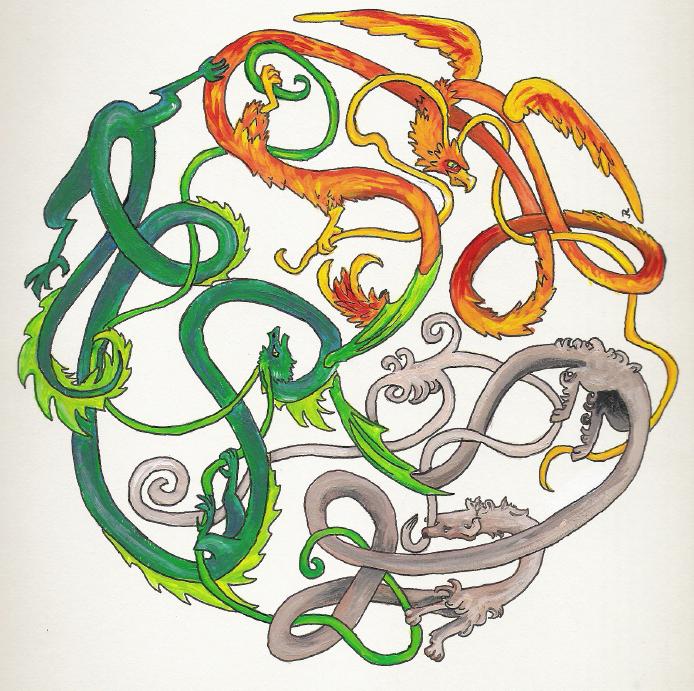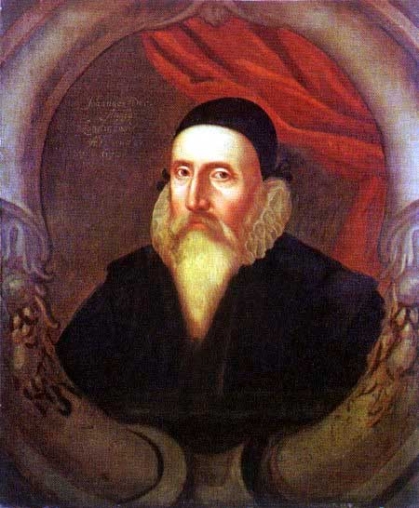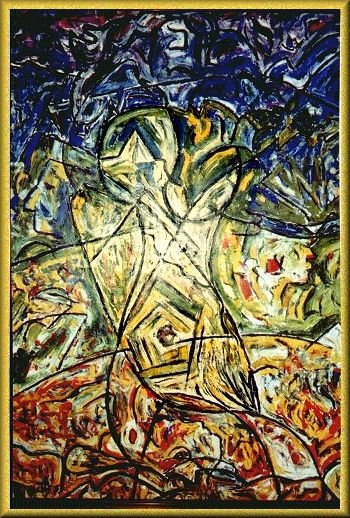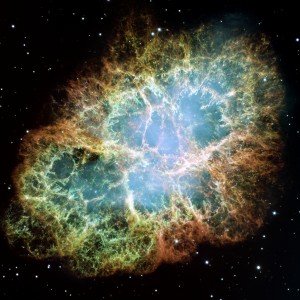1. The Devil Is A Jerk
So if everything is one, a single manifold consciousness of pure benevolent love, a single infinitely recursive web of time, causality and spirit, well that’s pretty good, right? Sure there is death and destruction, but change is a gift: from fallow fields rise fertile crops. And, luckily, from fertile crops fall fallow fields.
It works in both microcosm and macrocosm. The totality of Being is a vast interconnected tree, water coursing up from the wells at its foot, spilling from its branches, back down again – thus time unfolds ecologically, spraying out in simultaneous yet mutually exclusive patterns of probability. Everything is and is not.
Likewise, down the scale a bit, earth’s weather patterns work like this: an endlessly referential and super-complicated web of matrices which are infinitely predictable after the fact; but utterly mysterious when viewed from the eternal crest of the present horizon.
Because of the absolutely uniqueness of every abstracted moment in the matrix we find that the whole system is simultaneously perfect/ideal and imperfect/debased. In the absolute individuality of each moment and phenomenon (which is derived from the absolute dissolving interconnecting oneness of the whole system) consciousness emerges.
Every cloud is spirit; every drop of rain a quicksilver thought in the mind of God (or whatever you choose to call Him/Her/It).
So it goes – fractal geometry replicates down and up infinitely from a set of finite premises – a kind of mathematical, cosmic perpetual motion machine. As we approach nothingness or as we approach Being the ratios contract or expand exponentially.
This is why, as Heidegger says, Being conceals itself. The closer we get to the big picture the harder it is to get close to it. This is why he teaches us to stand back and listen and shelter and think and dwell. Only in this way can we come to Being as a whole: by realising we always already start there.
If I understand correctly (which is unlikely), an analogy can be drawn to Einstein’s point about light speed – the closer we get our spaceship to light speed, the harder it will be to get there because of the geometric ratios at play. But if we could start ourselves off faster than light speed (which might possible?) – well, no problem!
Thus we find ourselves in the gorgeous voluptuousness of the oneness and difference of all things. I am every other being that exists by virtue of the fact that every other being is shaped by its relationship to me just as I am shaped by my relationship to every other being.
The preceding sentence can recurse forever, like the two serpents of a Caduceus; like DNA.
Difference and non-identicalness are real but are also the necessary conditions for the absolute non-difference and identicalness of all Being. There is no “synthesis” of these seeming contradictions that can be expressed in a linear logical way. Only poetry does the job. Thus Rumi teaches: “sell your cleverness and buy bewilderment”.
As manifest fragments of cosmic consciousness (can I really say that with a straight face?), human beings lose perspective all the time on the Big Picture. It doesn’t help that modernity tends to efface all the reminders that pre-modern cultures build into daily life, either.
For the old Germanic tribes lineage was important because one’s descent runs back all the way to the Wells at the foot of the Tree. Cut off the connection and you die. Separation is inevitably fatal, even if total dissolution all the time is a bit pointless.
We need to ride the crest of Verdandi, the present: as individual beings which are non-separate from wyrd. Otherwise? Well, otherwise we become parched vessels, cracked and crumbling in the desert of our ignorance and amnesia.
The devil is a jerk.
Why is the devil a jerk?
The devil is a jerk because he is the agent of amnesia. The devil wants you to forget that everything is One. The devil wants you to think that you alone own your existence, your actions, your will. He wants you to thumb your nose to the infinity of creation that you owe your whole existence to.
The devil tells you that you are isolate, absolute, self-created, a source of meaning which manifests ex nihilo – from nothing. The devil says that reality is fundamentally disconnected, discontinuous.
The natural state of being is not the cycle of life-death-rebirth as in the cosmic tree. No, the devil reckons that the natural state of being is kill or be killed. You can be immortal and moreover you should want it and you should want it at the expense of all other beings.
Sure, some weak-kneed apologists for the devil have proposed the notion of enlightened self-interest – namely that if I help people out they’ll help me out. That if I do my bit to make the world a better place I’ll benefit in unpredictable, rich, non-linear ways.
But implicit in this idea is the notion that the rule of Being is the oneness as well as the difference of all things and a real devil-worshipper will have no truck with this.
The devil says that your actions are your own, your ego is the only thing of value, that you can control anything and everything, that allowing things to be what they are (instead of what you will) is weak and contemptible.
Ironically many people under the devil’s sway are unequal to this dare and challenge and become depressed, lost, confused, somnambulant, pathetic, lonely, powerless, numb, etc, etc, etc.
Only by recovering their connectedness to the horizon of Verdandi, the present (which is to say: the horizon of mystery [which is to say, RUNA]) can such folk be healed.
By giving ourselves to the infinity of the unknowable grandeur of Being we are given back to ourselves as finite but unbounded, as individuated and interconnected. Whole, as the old Germanic tribes would say. Heilige. Holy.
The devil does not want this; he wants us to fight our true nature, to use force of will no matter how much it poisons us and those around us and leaves us, ultimately, empty and cauterised. The devil is a jerk.
2. The Devil is a Champ
The sum total of your domain ends at the surface of your skin; at the limit to which your voice is audible; at the limit to which your words can expand; at the limit to which you can use violence to achieve your ends; at the limit to which you can impose order on the infinite chaos of existence.
Sure, give in to chaos. You’ll be torn to utter shreds. How will you cope if you dare to gaze into the infinite reaches of Being? You won’t. Like the cosmic lamb to the cosmic wolf, you’ll be ripped to pieces, bleating like the pathetic domestic beast that you are.
The chaos doesn’t hate you (although it might) and it certainly doesn’t love you. It has no intentions toward you, no will. It is chaos. As soon as you start to talk about it in coherent language you are projecting human (all too human) characteristics onto something so fundamentally alien that you’ll never even begin to understand. Fall silent!
Ahh, but can you endure being enslaved to ignorance of the true nature of things? We flee into the cloying smell of wool and lamb shit, bleating like wimps. This is it folks – this is all the existence you’ve been given, will you squander it like a chump?
God is the Law of utter Chaos, and he lives inside you and is telling you to bow down and shut up and blunder through the meaningless Brownian motion of your existence. You think it means something? You’re ignorant and blind and stupid and even death is too good for you.
Nothing is connected, coincidence is purely random, the stars haven’t been talking to one another since the big bang and meaning is an illusion created by dumb-ass ape-like mammals that are far too convinced of their own importance. Wake up, you bleaters: we will come and go in the blink of the eye from the point of view of Chaos!
Only the brave win. Only the evil, the cruel, the self-obsessed, the masterful, the bloody, the vicious, the conniving. Only those who instinctively steal from the sheep around them, the wolves in sheep’s clothing, will ever get anywhere.
You think there is meaning? Unless you personally made it, it doesn’t exist. ME is the only important bit of the word MEaning. Well, not quite. MEAN is also pretty damn important.
This is not an easy challenge, to do battle as the isolate being you are with the endless tides of ignorance and ultimately of the contemptuous and mediocritising gravity of the Law of Chaos. The Law of Chaos wants you to be small and weak. You must fight it, you, alone against the cosmos. Alone against the cosmos, you, the true hero.
Not a hero for the people, not a saviour, not a healer or helper. But a hero for villains, liars, betrayers, murderers – all those with guts in this world of cowards. You must steal power from everything you encounter, stuff yourself with it, bloat yourself with it, create of yourself such mass that you exert a gravitational pull on the chaos, until your will orders the space around you.
Then the sheep will flock to your cause, your side, to serve, safe in the harbour of will and gravity that your iron-fisted desire has created. The more that flock to your banner, the more powerful your momentum. You are becoming a god.
The Law of Chaos – the ultimate cosmic deity – will try to stop you with misfortune, conflict, struggle. And others like you, other wolves in the land of sheep, will fear and hate you and try to steal from you to feed themselves.
But you love it, you love crushing your foes. You love crushing anything precious, powerful, beautiful, gravitational. Why? Because it feels good. Power is its own end.
The devil teaches the way. Reject the status quo (except the one you seek to forge yourself, of course). Reject the pathetic order that the Law of chaos has bequeathed you.
He leaps forth recklessly, one flickering spark against the entire ocean of chaos, to declare his will and desire and determination and fire. He smashes the illusion of interconnection, which is actually the armature of psychic bondage, which keeps the lambs bleating and stupid.
You don’t worship the devil. Why would you? Then you’d be placing something above yourself. Sure, you might pretend to worship the devil or any other being, but you don’t really.
You don’t worship the devil but you have to respect the old bastard, even if you’d happily destroy him and take his place at any moment. You copy his way of being, his mastery of fear, violence, theft and isolated arrogance. The devil is a champion of your cause, even though you’d happily knife him to get a leg up the ladder of your will.
3. The Devil Needs A Noose (The Devil Is A Noose?)
Secretly you hate mystery (that is, Being [that is, Runa]) because it refuses itself, and you seek to dominate it at every turn. In a way you love its endless new mysteries because this ensures you never run out of territory to conquer.
But the more you conquer, the more you secretly face how vast it is. Ever more desperate, caught in a vicious, inwardly tightening spiral, you lash out.
Mystery is mystery however. Mystery always wins.
Mystery always wins.
Mystery always wins.
Once, in an altered state, I declared:
RUNA, I give myself to you completely. Take me! I’m yours!
Runa responded:
But my dear boy, I already own you and always have. And you are a part of me and always have been. And so you seek to give yourself to myself, sjalf sjalfum mer as dear Yggr declared on his steed, the Tree. You give yourself to me but you always have been part of me. Give yourself to me and you give yourself also to yourself. Give your isolation to me and I will give you a lineage.
That’s what Runa said as she gently laughed at my expense and loved me all the more for it.
Mystery always wins. I have written two stories about the devil. Is the devil a champ or a jerk?
My experience tells me he is a jerk, but I love him anyway. I love his reckless hilarity, his passion and fury. His simultaneous hatred of injustice and perpetuation of injustice. What audacity to be so unevenly even-handed! What courage to tilt at the marvellous cosmic windmill!
If the devil did not make me forget the wonder of Being then I would not get to endlessly re-experience the ecstasy of remembering it again.
Therefore: thank you, Mr Devil, for my dark valleys – they are the necessary condition for my mountain tops and blessed isles, for my eagle and my serpent. If only Nietzsche had possessed the good taste to worship the natural majesty that nourished him without so much as a please or thank you!
But to those who emulate the devil, those provincial misers of spirit, those who never squander themselves as Nietzsche implores us to do, who erect crumbling towers for their empty egos – to these I say: you would settle for so little and think yourselves so rich.
Thus I declare: tie yourself a noose and break on the tree.
On the tree called by men Laerad and gods Yggrdrassil.
On the tree called by some Ash and others Yew.
On the tree that ever is destroyed and ever renewed.
Break on the tree, friends.
Break and become whole.










